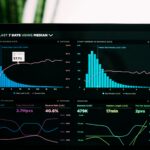In today’s data-driven world, businesses rely on various metrics and Key Performance Indicators (KPIs) to gauge their success. Whether you’re tracking the performance of your marketing campaigns, assessing employee training programs, or understanding customer preferences, having the right KPIs in place is crucial. One powerful tool for collecting data and insights to measure these KPIs is assessment quizzes.
In this comprehensive guide, we will delve into the world of KPIs and assessment quizzes, exploring how they work together to help businesses measure success effectively.
The Importance of Key Performance Indicators
KPIs are essential for any business that wants to understand its performance and make informed decisions. These quantifiable metrics help organizations track progress toward their goals, identify areas that need improvement, and celebrate successes. KPIs can vary widely depending on the nature of the business and its objectives, but they all share the common goal of providing actionable insights.
Businesses use KPIs in various areas, such as:
- Marketing: Measuring the effectiveness of marketing campaigns, website traffic, conversion rates, and customer acquisition costs.
- Sales: Tracking revenue, sales growth, lead generation, and customer retention.
- Employee Performance: Evaluating individual and team performance, goal achievement, and skills development.
- Customer Satisfaction: Gauging customer feedback, Net Promoter Score (NPS), and customer support response times.
- Product Development: Assessing product quality, feature adoption, and user satisfaction.
- Financial Performance: Monitoring revenue, profitability, and financial stability.
While KPIs offer valuable insights, collecting relevant data to measure them can be challenging. Assessment quizzes serve as a powerful tool to obtain data and insights necessary for effective KPI tracking.
Assessment Quizzes: A Data-Driven Approach
Assessment quizzes are interactive tools designed to gather specific information, often through a series of questions and tasks. These quizzes can be tailored to serve a variety of purposes, and their flexibility makes them invaluable for businesses aiming to measure KPIs effectively. Here’s how assessment quizzes work:
- Data Collection: Assessment quizzes collect structured data through user responses. Questions can be designed to gather information that aligns with your specific KPIs. For example, if you want to measure customer satisfaction, you can create quizzes that include questions about the quality of your product or service.
- Segmentation: Assessment quizzes can automatically segment participants based on their responses. This segmentation is crucial for tracking different KPIs based on user characteristics, preferences, or behaviors. For instance, in marketing, you can segment your audience by their preferred product categories to measure the effectiveness of specific campaigns.
- Scalability: Assessment quizzes can be scaled to accommodate a large number of participants simultaneously. This scalability is especially beneficial when tracking KPIs related to customer feedback, market research, or employee performance, where you need to collect data from a diverse set of participants.
- Engagement: Assessment quizzes are engaging and interactive, encouraging participants to complete them. They are often more appealing than traditional surveys, which can lead to higher response rates and more accurate data collection.
Aligning Assessment Quizzes with KPIs
To effectively measure KPIs using assessment quizzes, businesses must ensure alignment between the data gathered and the metrics being tracked. Let’s explore how this alignment can work in different areas of business:
Marketing and Customer Acquisition
KPIs: Conversion rate, click-through rate, customer acquisition cost (CAC), return on investment (ROI).
Assessment Quiz: Create a quiz that asks participants about the sources that led them to your website, their interests, and the products or services they are considering. Use this data to measure the effectiveness of different marketing channels, ad campaigns, and the quality of acquired leads.
Employee Training and Development
KPIs: Employee performance improvement, training program effectiveness, skills development.
Assessment Quiz: Develop quizzes to assess employee knowledge before and after training programs. Track the performance improvement and skill development of employees over time. Collect feedback on the training content’s quality and relevance.
Product Quality and Customer Satisfaction
KPIs: Customer satisfaction, Net Promoter Score (NPS), product adoption rate.
Assessment Quiz: Create quizzes that measure customer satisfaction and NPS by asking customers about their experience with your product or service. Gather data on product adoption and feature usage to assess the quality of your offerings.
Employee Performance and Goal Achievement
KPIs: Individual and team goal achievement, productivity, skill improvement.
Assessment Quiz: Develop quizzes to evaluate employee performance and skills. Monitor goal achievement by asking about progress and outcomes. Use the data to identify areas where employees need further training or support.
Market Research and Customer Preferences
KPIs: Market share, customer retention, market growth, customer preferences.
Assessment Quiz: Create quizzes that investigate customer preferences, buying behavior, and brand perception. Understand which products or features customers prefer and collect data that informs market growth and retention strategies.
Extracting Insights and Taking Action
Once the data is collected through assessment quizzes, it’s essential to analyze it, derive meaningful insights, and take actionable steps to address your KPIs. This process includes:
- Data Analysis: Thoroughly analyze the data collected from the assessment quizzes. Look for patterns, trends, and outliers that provide insights into the KPIs you’re tracking.
- Segmentation: Segment your data based on various criteria, such as demographics, preferences, and behavior. This segmentation allows you to track KPIs for specific customer segments or employee groups.
- Actionable Insights: Identify actionable insights from your data analysis. Determine which areas need improvement, which strategies are working, and where you should allocate resources to achieve your KPIs.
- Feedback Integration: Consider incorporating participant feedback into your products, services, or training programs. This feedback loop ensures continuous improvement aligned with your KPIs.
Measuring success requires a strategic approach that combines KPIs and assessment quizzes. These interactive tools not only gather relevant data but also engage participants, leading to more accurate and insightful results. Whether you’re focused on marketing, employee training, product development, or customer satisfaction, aligning assessment quizzes with your KPIs is a powerful way to measure success effectively.
To stay competitive and responsive to changing market dynamics, businesses must harness the combined power of KPIs and assessment quizzes. By collecting, analyzing, and acting on the insights gained from these quizzes, organizations can fine-tune their strategies, enhance their offerings, and ultimately achieve their goals.





